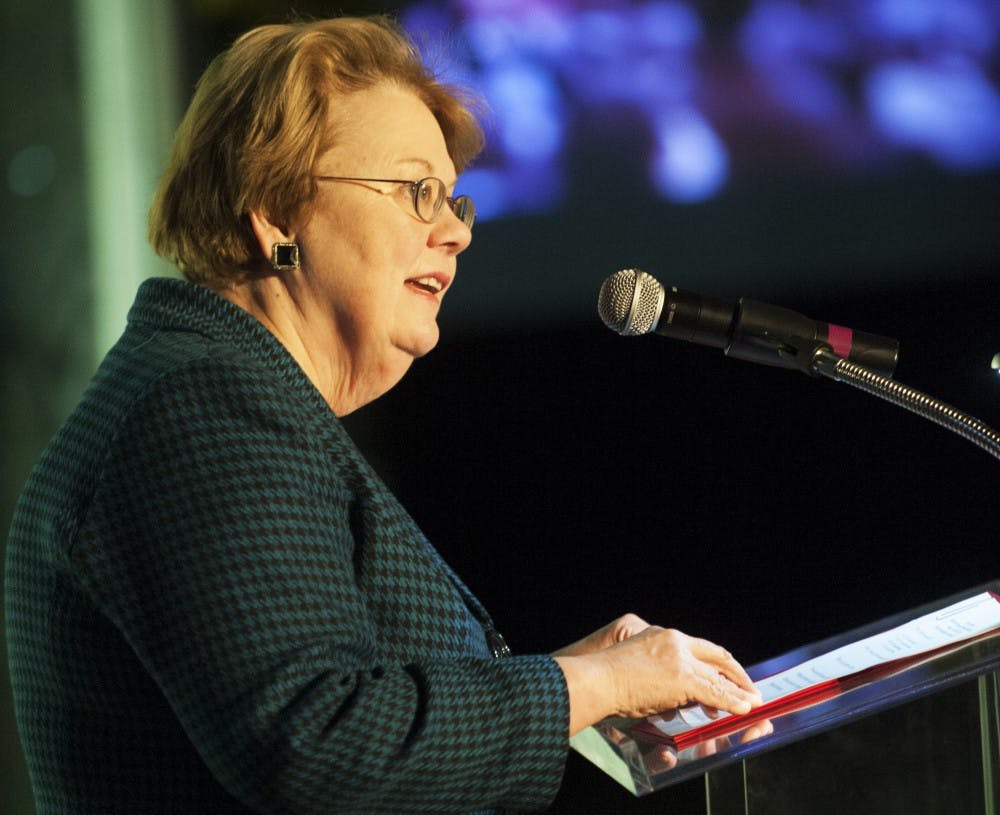The University released a revised interim Policy on Sexual and Gender-Based Harassment and Other Forms of Interpersonal Violence Monday afternoon. The 18-page interim policy describes reporting options, specific procedures under the policy and distinctions between reporting and procedural options for both students and University employees.
In an email sent to the University community, President Teresa Sullivan said the new policy outlines new practices to encourage reporting and participation, details due-process protections for students and employees and shows the support of the University for all members of the University community.
To encourage reporting, the interim policy includes expanded resources to guide members of the community to better work to contain and ultimately eradicate sexual violence at the University.
The new interim policy describes prohibited conduct as sexual assault, sexual exploitation, intimate partner violence, stalking, sexual or gender-based harassment, complicity in the commission of any act prohibited by this policy and retaliation against a person for the good faith reporting of any of these forms of conduct or participation in any investigation or proceeding under this policy.
If employees or students violate the new policy, they may face disciplinary action up to and including termination or expulsion. The procedures for reporting, investigating and resolving prohibited conduct differ depending on one’s relationship with the University — whether they are a student, employee or third party.
Matt Charles, a University spokesperson, said the new policy “supports the University’s ongoing efforts to provide a safe and non-discriminatory environment on Grounds.”
The previous policy — called the Policy and Procedures for Student Sexual Misconduct Complaints — was last revised July 8, 2011. Changes to the existing policy were requested and began about a year ago, and an online forum was established for the University community to publicly comment on a revised student policy from Nov. 19, 2014 to Dec. 20, 2014.
“Preliminary planning for this policy began during the spring of 2014,” Charles said in an email. “Nearly 600 individuals responded to the draft of a revised student policy shared with the community in November 2014.”
After reviewing all the responses, the University began developing the interim policy. Charles said the development of this interim policy considered the impact of evolving federal and state law, improvements to procedures and practices based on the University’s experience with the prior policy over the past several years, trauma-informed approaches and training and fair and impartial proceedings based upon due process.
Some of the key changes for students in the new policy include an improved Student Resource Guide providing information for counseling and support, new reporting options — such as the anonymous online reporting system “Just Report It” — and changes in the University Resolution Process.
The interim policy provides two forms of resolution in the University resolution process — a formal resolution, which involves an investigation and hearing, or an alternative resolution, which involves other practices to “eliminate, prevent, and address the effects of prohibited conduct.
Significant changes in the formal resolution process now include the process of sanctioning. The policy explicitly states “some behavior is so egregious in nature, harmful to the individuals involved or so deleterious to the educational process that it requires severe sanctions, including suspension or expulsion from the University.”
The alternative resolution was also expanded to clarify that the it may not be available when certain risk factors identified during the University’s threat assessment are present.
Sullivan said the interim policy will be open to continued review over the coming months, but that it is important to have a policy in place to address the needs and concerns of the community.
“We expect additional revisions to the policy in the coming months as we receive input and recommendations from internal and external reviews,” Sullivan said. “Pending legislation from the Virginia General Assembly may also require further revisions to the policy. It is, however, essential that we have a revised policy in place now to serve the needs of our community and address current legal requirements under Title IX, the Clery Act, and the Violence Against Women Act.”
Summary of revised sexual misconduct reporting procedure for students







